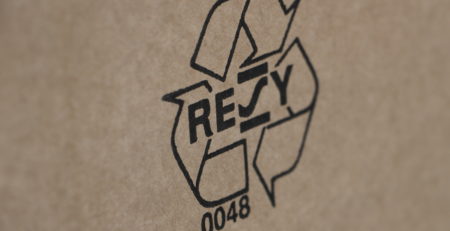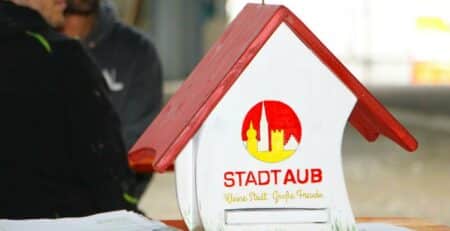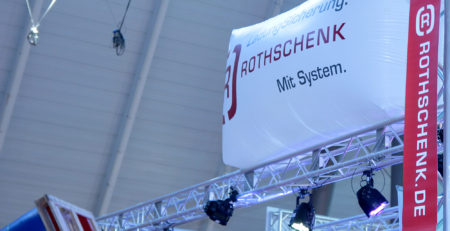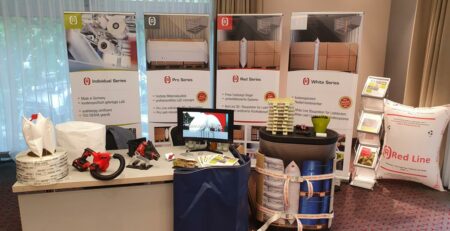Women's quota? We have: 70%
The discussion of the women's quota is often characterized by dominant clichés and the question of whether equality across all sectors is feasible and sensible at all.
At Rothschenk, meeting a prescribed quota was never an issue. From the very beginning, the proportion of women was above average and a defining element of the corporate culture.
The Würzburg Main Post visited us from the outside and summarized this special feature in a newspaper article.

Excerpt from the newspaper article:
Baldersheim. ...In this context, the small G&H GmbH Rothschenk in the remote town of Baldersheim in the district of Würzburg is something special: 70 percent of the workforce there is made up of women.
A rate that is probably exceptional in Mainfranken. Although the Würzburg-Schweinfurt Chamber of Industry and Commerce (IHK) does not have detailed data on this, they also emphasize Rothschenk's special role.
This raises the question of why the company, which specializes in transport safety systems, is so different from others because of all the women in its day-to-day operations. After all, Rothschenk is managed by men. However, if you talk to female employees, it becomes clear that the differences to conventional companies are subtle but effective. And yet somehow feminine, cliché or not.
Conflicts are always dealt with openly, everyone is on a first-name basis and there is an everyday need for harmony: this is how Sustainability Officer Johanna Ott and Production Manager Ulrike Schmidt describe the nature of the Rothschenk company. "But we can also really argue," says Head of Human Resources Veronika Uttinger-Dick.
Harmony and female powerHeadwinds in equal measure: According to Managing Partner Torsten Urban, he experiences this time and again. It can happen that he and his three co-partners come up with an idea - and run up against a charming wall in the workforce. Then it's clear that the idea won't work out. "We have a very flat hierarchy," says Urban. And we are more "shirt-sleeved" than others.
The 58-year-old has observed what it means when 52 of Rothschenk's 75 employees are women: The top topics of conversation in the company are "different on Mondays" than on the male-dominated construction site. From his own experience, he knows that it's mostly about soccer. Not at Rothschenk. What happened at home, how the family is doing - these are the kinds of topics that are discussed after the weekend, says employee Ott.
This also takes into account the fact that "we are here in the countryside," says plant manager Urban. In families, the traditional division of roles still often applies, according to which the man is the main breadwinner and the woman looks after the children during the day, among other things.
For production manager Ulrike Schmidt, the dominance of women across almost all Rothschenk departments is a daily challenge. Because the company is committed to sustainability and family-friendliness, the 63-year-old constantly has to reconcile work schedules and many individual requests.
Sometimes a colleague's child is suddenly ill, sometimes a relative needs to be cared for, sometimes something else is going on in the family: according to Torsten Urban, there have been up to 30 working time models in the company in order to meet all the needs of the employees. Now the core working hours are from 7 am to 3 pm. The operating hours extend from 6 a.m. to 8 p.m., so that there is the possibility to work flexibly at the edges, explains production manager Schmidt. It is not a problem if a colleague has to leave at 1 p.m. because there are urgent matters at home.
We really do have a very good working atmosphere," summarizes Ott. She also notes this in the fluctuation rate at Rothschenk. It is 6.5 percent. The national average is around 30 percent. In other words, people who work at Rothschenk stay at Rothschenk. Head of HR Uttinger-Dick has been with the company since 2000 and remembers that back then only women were employed there. The fact that it is still 70 percent today simply happened that way. A quota was never mandatory and "doesn't make sense either", says Torsten Urban...





















Schreibe einen Kommentar